"With great sorrow, we've chosen to leave"
"On October 7, the covenant between the State of Israel and its citizens was shattered. Talk of leaving suddenly became legitimate. Israelis who've chosen to leave explain why."
Today we focus on a phenomenon that may not make some of us very happy, but that is still getting more than a bit of attention in Israel—those who are choosing to leave. Our goal in Israel from the Inside is always to share not just what fills us with pride (of which there is a great deal) or that we agree with, but also things that give us pause, and in other cases, views with which we don’t necessarily agree. Today’s post is in that spirit.
But before we get there, a snippet from Israeli social media.
The following video, posted here on Facebook, doesn’t need much explanation. Seems to be filmed in a hospital or a rehabilitation facility. There are thousands of Israelis, most of them young men, recovering from grievous wounds in the war.
To give a sense of the magnitude of the number of seriously wounded, consider this screenshot from a recent article in Yisrael Hayom, translated by Google Translate.
That’s useful background for appreciating the video from Facebook. We didn’t translate it. The only words that really matter are those on the banner in the background, which say, “Tamar, will you marry me?” At 00:47, she says, zeh norah meivich; “this is so embarrassing.”
The rest speaks for itself. (The first couple of minutes will give you the idea … we posted it as it appears online, without cutting anything.)
I confess to finding the courage and resilience of these young people utterly stunning.
Both of the headlines at the very top of this post above appeared in what was, to me, a very sad article in Calcalist, perhaps Israel’s leading financial paper, a bit more than a month ago. The original article is very long—what we’ve included below are merely a few brief snippets to give you a sense of the sentiment.
These are, perhaps, not the sides of Israeli society that many people who care about Israel want to read about. Our goal, though, is to share Israel as it is, what it is that Israelis are thinking and speaking about. That the issue was raised in such a major, well-regarded publication means that it’s one of those sentiments in the air in Israel that we need to appreciate to have a fuller sense of what’s transpiring here.
What follows is mostly a Google Translate-generated translation, with only the most egregious errors corrected.
It is not easy to leave home, family, community, mother tongue, professional status, and start over in an ocean of uncertainty. But for a growing number of Israelis, this difficult start became after October 7 the only choice.
During the last week we spoke with about 20 Israeli men and women, of different ages, from different places in Israel, from different fields of work, leftists and rightists. They all described to us how, in the face of the trauma, the feeling of abandonment by the state and the fear that settled in their hearts, they decided to try to build their home in another country. They revealed the heartbreak involved in this separation, but emphasized that they voluntarily chose to replace the uncertainty inherent in the ongoing war here with the uncertainty involved in acclimating to a new country.
…
[O]n October 7, the Israeli DNA underwent a huge upheaval, the extent of which is only becoming clear. And since then, talk of leaving has been everywhere: in Facebook groups, in family conversations, at work, in social gatherings. You can't escape it. You can't bury your head in the sand. In the face of the horror that took place here, immigration from Israel, which has always been a highly charged topic, received a legitimacy it never had.
The five people interviewed below reflect a wide range of citizens who chose to emigrate. ….
Dr. Amikam Bar-Gil, 46, a marine biologist from Kiryat Shmona, is leaving for Portugal next month
…
“I served in the reserves for more than 20 years, I set up a business, I employed 15 workers in the periphery, I really tried, but I was broke. We only have one country, and it’s not pleasant because people are fighting us, but I admit, I’m just not strong enough.”
…
“I received the first slap in the face after many of my friends in elite units in the north and in emergency rooms told me: ‘The first moment the shit hits the fan, run away as fast as possible, you can’t imagine what the scenarios are and how unprepared we are.’ …
“And the abandonment is not just what’s happened now, it’s been decades that the state, the decision-makers, the senior ranks of the army and the defense system, prefer a surface quiet to addressing problems. A state needs to take care of its citizens, and as soon as the feeling of personal security goes to hell, it’s a violation of an agreement. The Judicial Reforms didn’t interest me, yes, we will establish a dictatorship or not, stop confusing your brain, because no one bothered about the really important thing. I was a right-wing person and for many years I voted for Likud, including in the last elections, and today, I have to confess that that was sinful.
And there came another slap in the face, following which you decided that you had reached the end of your life?
“As the war continued, I saw how the north became invisible. It’s understandable because the south went through a Holocaust and that’s where the war is going on, but there is a kind of turning a blind eye towards the north. They say ‘slowly’, as if they want to roll this hot potato into the next government, the next party, for the next Knesset …
“You say to yourself, I can’t go back to my house in Kiryat Shmona, I don’t know if I should sell it, I don’t know if it will be shelled. I don’t have a job to go back to, I have to start over, so where will I do it? In a country that is going to become more expensive by tens of percent, which is under the spell of countries that want to destroy it, or in a cheap and pleasant place, without fear, near the seashore?
…
How do you feel about the decision?
“I’m sad. I say this with great sadness and pain. Yesterday I said to my best friend, ‘If I’m broken, then I need to check out leaving … What’s the end game? Will the country get better? Will things get better between us?’ And there will be those who will say ‘Well, no thanks’. The Zionist dream can be broken in an instant. There are a sea of problems that everyone sweeps under the carpet, and that’s enough, it’s stressful. I don’t know how many years I have, so I want to spend them having fun.”
Doesn't the fact that your parents are elderly make the decision difficult?
“They are already over 80 years old and they are not healthy people. When I told them there was some crying, but they told me ‘don’t think about us in this situation, go live your life and whatever happens will happen’.”
Uri Schwartz, 36 years old, left for Portugal
"For several years now I have been walking around with the feeling that the State of Israel is sitting on a barrel of explosives and that the day will come when the fuse will light and everything will explode. A red light went on during Operation Guardian of the Walls. I also remember the days of all the election campaigns and Covid. I tried to define for myself the red line of what needs to happen in order to for me to say that's it, I'm leaving, and every time I tried to define it, I already knew that the red line had been crossed a long time ago. On October 7th, the feeling came that this was it, the fuse was lit. Now I don't know how long until it explodes, but I don't want to be close when it happens." .
When did you leave?
“In the past year, I traveled in India and China, and since I came back, I have always walked around with my passport and a hundred dollars in my pocket, ‘just in case’, as the grandfathers used to say. On October 7, I stayed with friends in Kadita in the north of the country, and by noon I had a bad feeling. I looked at the bag and with a spur of the moment decision I bought a plane ticket for that evening …
…
Do you see yourself returning to Israel in the future?
“In February I’m going to a Vipassana course in England. … Maybe I’ll go to India, maybe Greece. In the meantime, a very good friend of mine from Israel informed me that he’s getting married in April, and when I thought about this trip I suddenly realized that I’m making it as a visit, and that it’ll be nice for me, because I miss my friends, the food, the sea. But I see it as a visit, I really don’t think about returning to Israel as an option. I know that reality is very fluid, nothing will surprise me, and maybe I’ll arrive in Israel for two weeks, I’ll meet someone that I will love and live with in Rishon LeZion for the rest of my life. But one of the things I always knew I was looking for in a girl was that she would be willing to live outside Israel.”
Your parents were basically left without a next generation in Israel, their three children abroad.
“True. They were a little shocked, they thought it was crazy and hysterical, but they also understood. They already know me so they are not really surprised by anything I do. The parents are the part that made me sad and hurt the most in my decision to leave, I told them that it hurts me to leave them like that, but I really feel that if this thing escalates as I think, I will have no way to protect them.”
…
I have a 96-year-old grandmother who was in the Palmach and saw everything, and telling her I’m leaving was quite the scene. But she too, when I asked her what she thought of the country, answered, ‘This isn’t how we thought it would turn out.’”
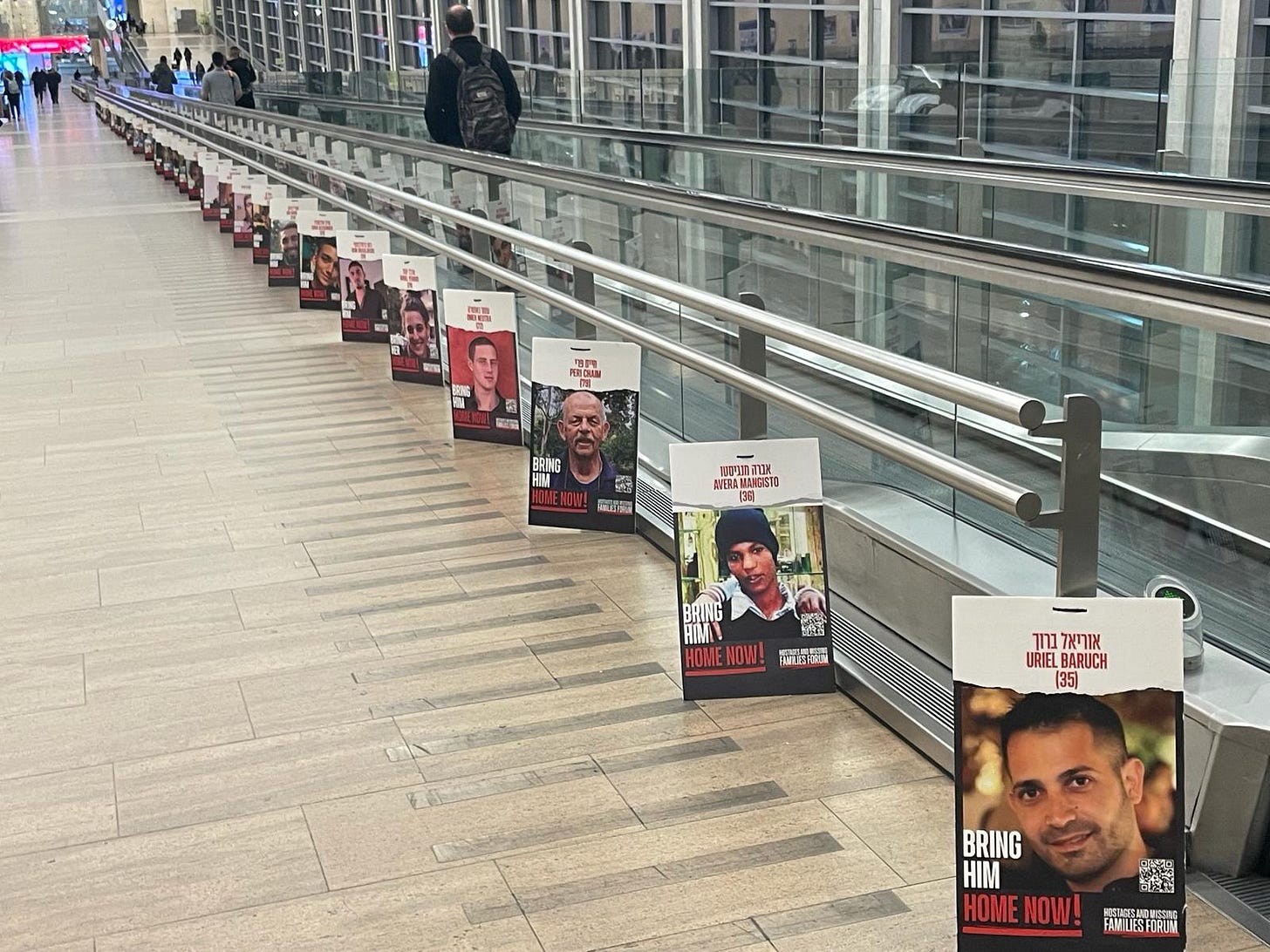
Adam Dash, 38, a photographer from Kiryat Tivon, moved to Catalonia in Spain with his partner Catalina and their five-year-old daughter, May …
How were you even able to live in a bubble in the first place?
“Somehow over the years we managed to escape the Israeli-Palestinian conflict. We live in Pardes Hana or Kiryat Tivon, and there are no air raid sirens there. We know there are missiles, but we don’t feel them. Every explosion with the Palestinians happened ‘there’, on the Gaza border or in places that are ‘conflictual’, such as settlements. Everyone in their own way suppressed reality. ….
And after October 7, it was no longer possible to treat it as something far away.
“Right. The air raid sirens changed the picture. Our daughter was with us at home and there was a lot of stress and sadness and a sense of loss for me as well… I could no longer protect her or myself. I felt, like everyone else, that my soul was being suffocated from the inside because of what happened, that my personal security had collapsed and you can’t tell yourself that it happened ‘there’.
…
And you won't come back?
“I don’t want to use bombastic phrases like ‘we left forever’, but I don’t currently see a situation where we would return to live in Israel.”
…
Michal Harel, 44 years old, distributor of Juice Plus products from Emek Hefer now in the town of Sesimbra in western Portugal with her partner, Eyal, a real estate agent, and their two daughters (8.5, 3.5)
“As soon as it all started, I felt in my gut the need to get out, from a place of fear. I realized that I was no longer safe where I was, that anything could happen at any moment, and I was afraid for my childhood. We lived in the safest place in the country, there are no alarms, the missiles don’t come from here and not from there, but I had a gut feeling that I needed to leave as soon as possible ….
…
How did your parents accept your departure?
“That is the hardest part. Eyal’s father has been living in assisted living for many years and suddenly we don’t visit him, it’s very difficult, but Eyal maintains daily telephone contact with him. My father’s health is not 100 percent, my mother takes care of him, and when I lived in Israel I helped them—which I can’t do now. So yes, there are challenges. My parents will surely come to visit, I’m really waiting for them to come here to be proud, to see that I’m leading a good life here and that they’ll feel contentment and love and joy.”
Are you encountering an environment that’s hostile?
“In Portugal … there are almost no Muslims here, there are occasional demonstrations but they are small and quiet and in Lisbon, an hour’s drive away. It’s really calm, I don’t think there’s anyone here who felt any kind of anti-Semitism on the street or anything like that. Everyone says they feel very comfortable. I’m not afraid, not even for the girls when they go out for activities. We were received very nicely, with understanding ….
Our landlord also, when he heard that we are from Israel, wrote to me: ‘I am really sorry for everything that is happening there now.’”
Ironically, the following article in Haaretz just came out describing the other side of the same coin—Israeli Arabs who are leaving, though largely for different reasons.
The article, which does require paid access to Haaretz, is here.
Impossible Takes Longer is available on Amazon and Barnes & Noble and at other booksellers.



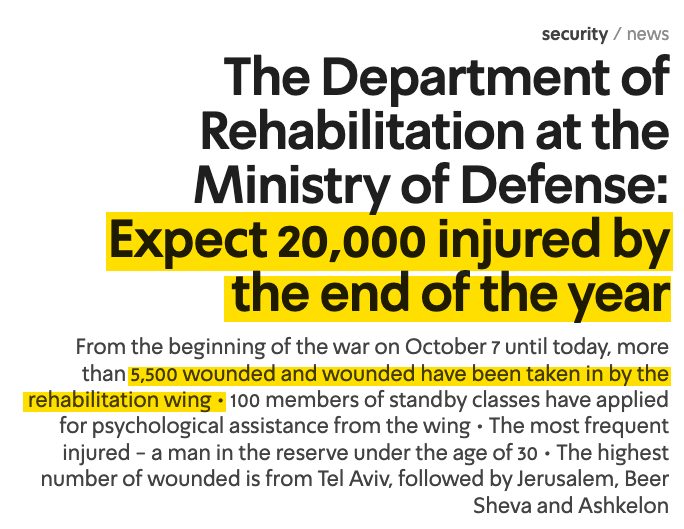

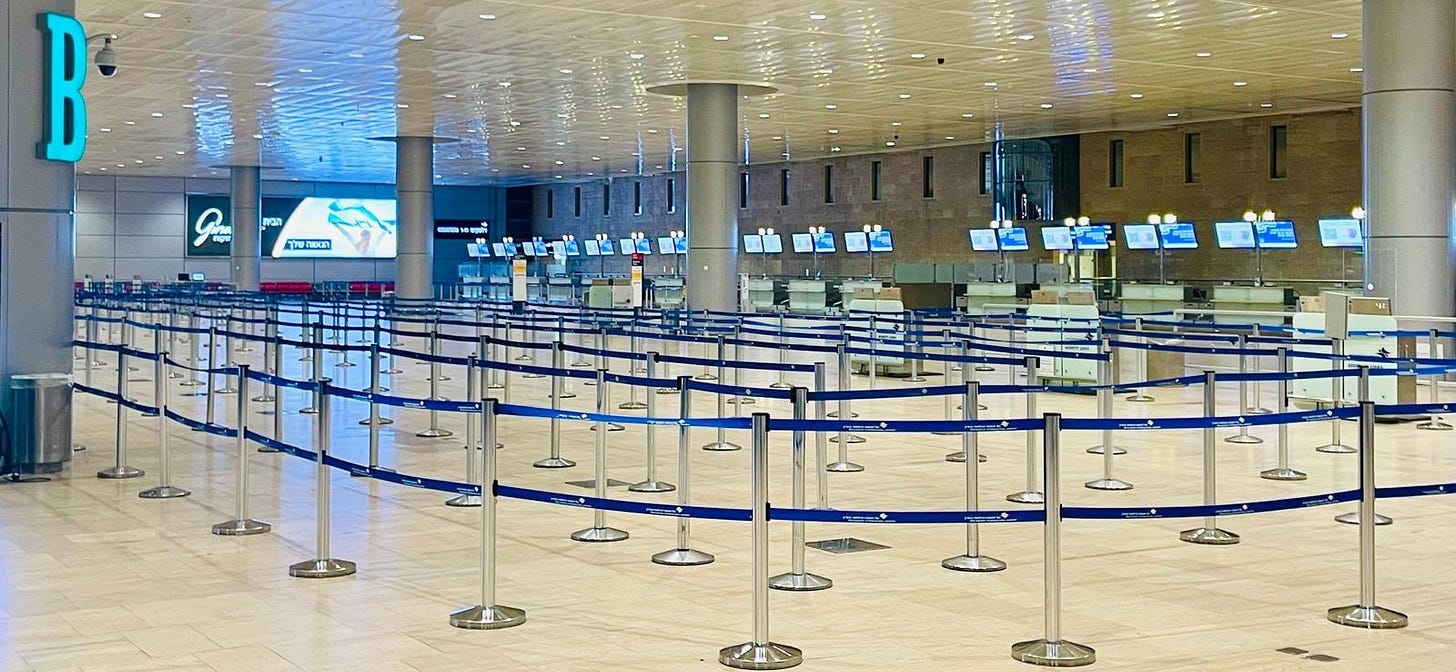
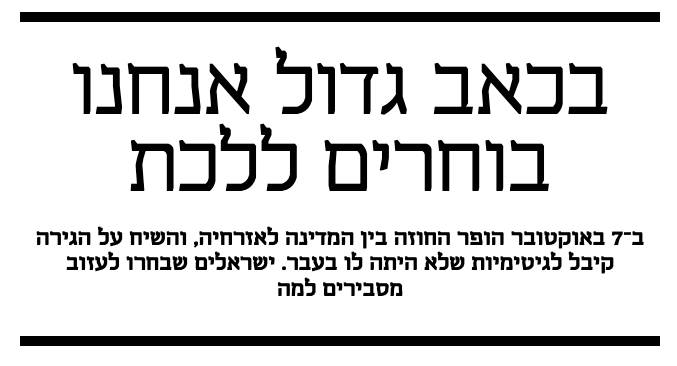
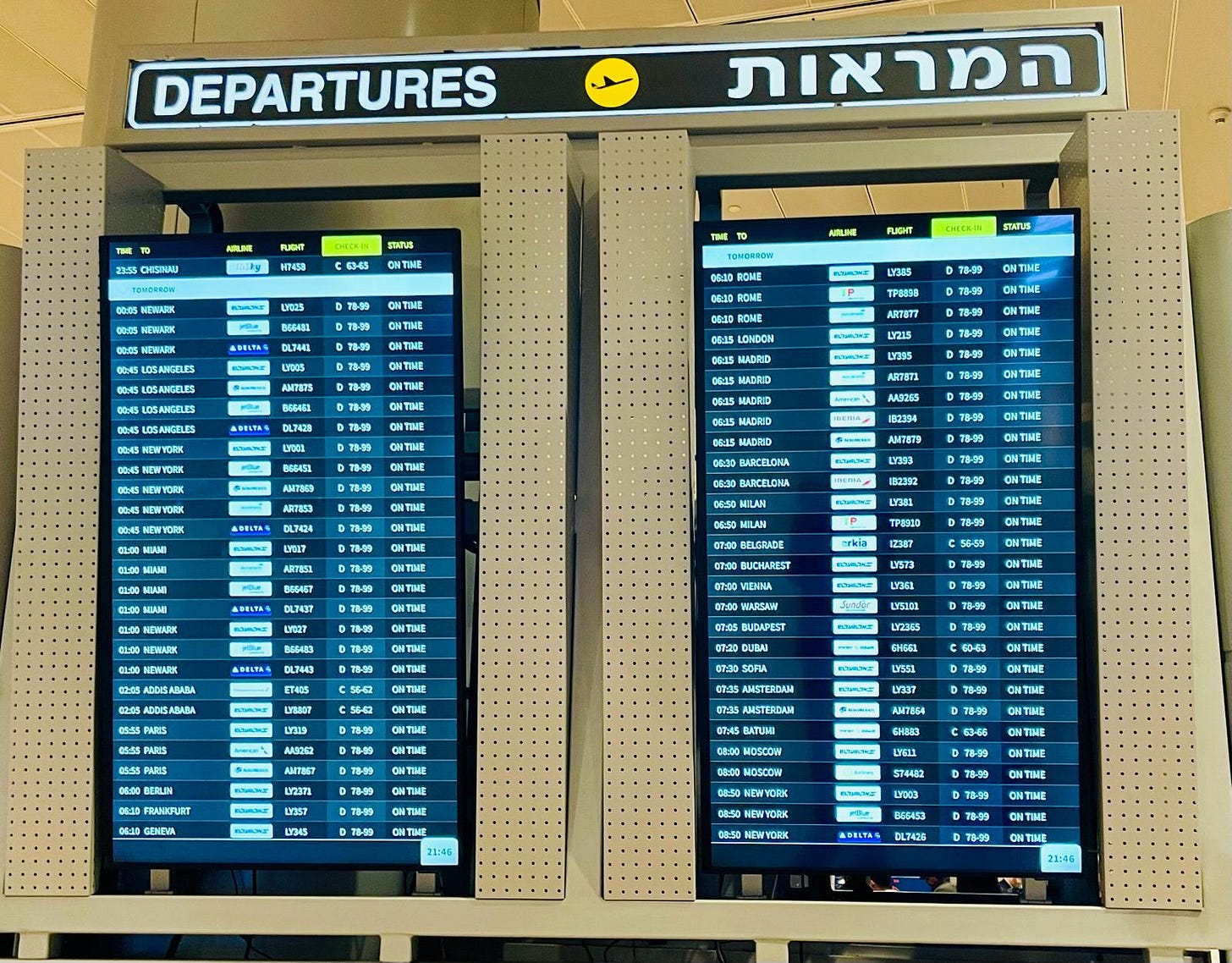
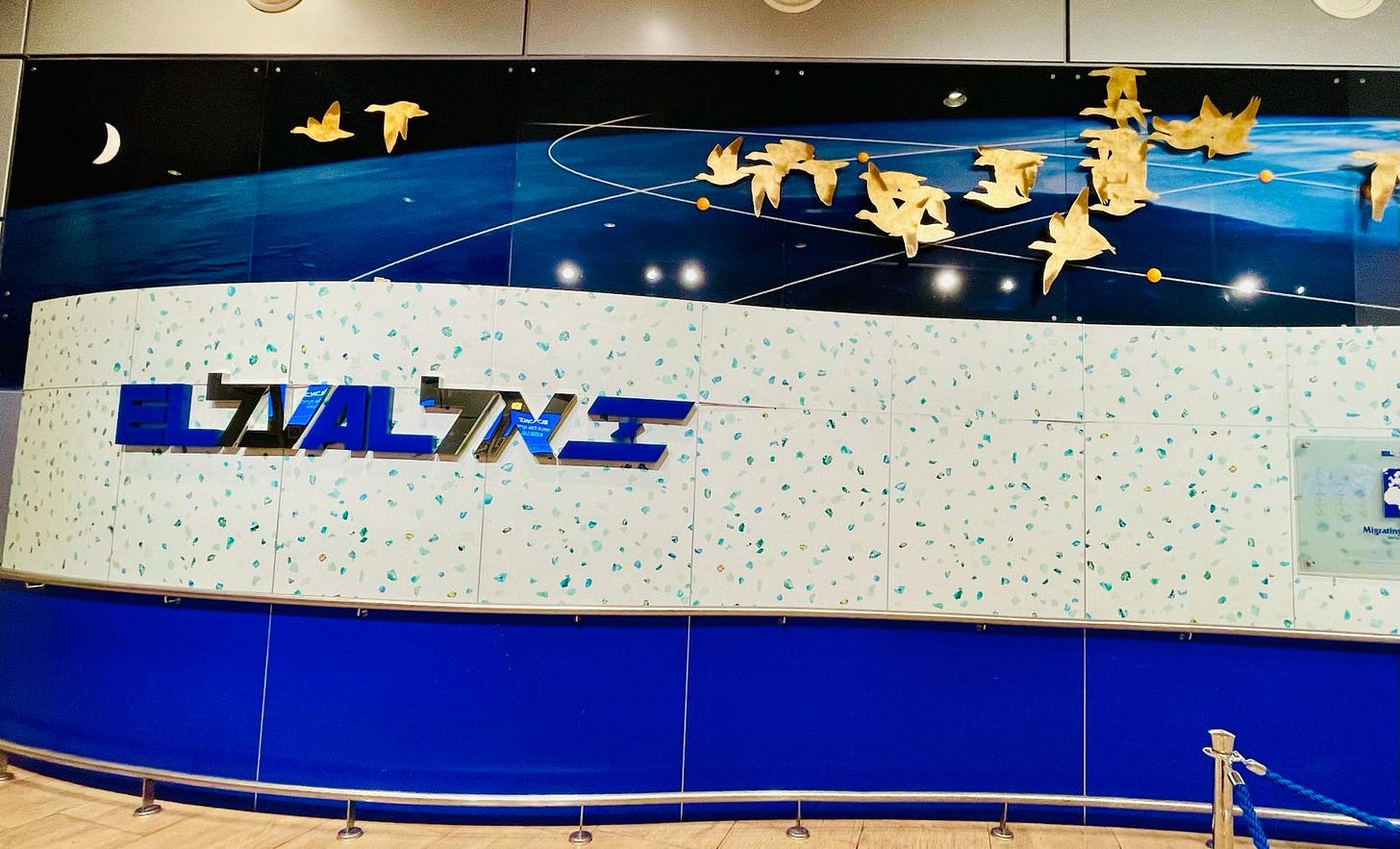

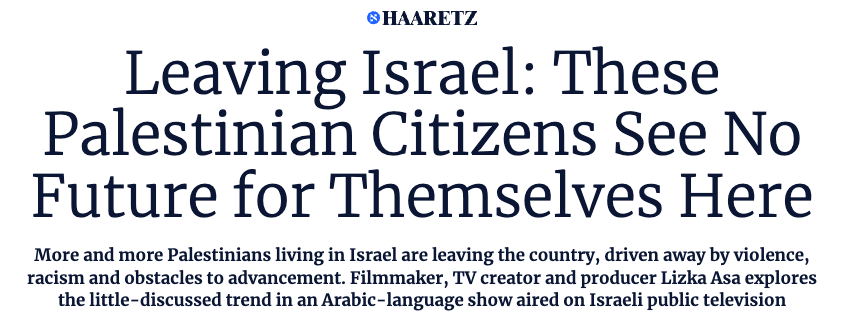

As a moderately religious American Jew, I’m visiting Israel and I’m ready to move to Israel ! The folks I know there are more real, warm and caring for one another, than many I know in other countries… especially in America.
These are all very sad stories. It is easy to understand their responses to the disappointment of seeing their government abandon them.
I do want to express two caveats. First, it is important to understand that wherever you go, you will always be a Jew, and the country that you go to will not be able to protect you (although it may try), because there is (so far) no inoculation against antisemitic feelings and actions. Second, almost from the founding of the state in 1948, Israelis have emigrated to other places in the world and while some have found success and happiness in other lands, many have not and have returned.
I do want to direct you to listen to Jonathan Podhoretz's recent interview with Dan Senor (on "Call Me Back") about the state of the American Jewish community and its present concerns.